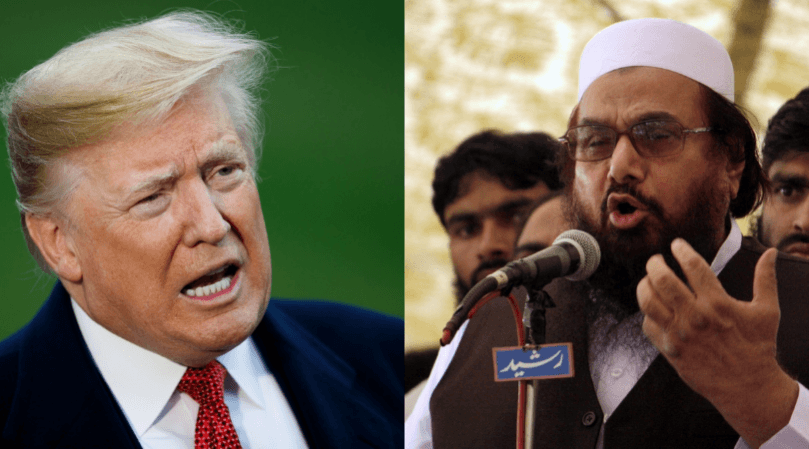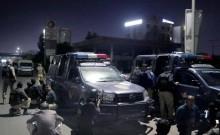Ahead of the Financial Action Task Force's crucial decision on whether to blacklist Pakistan, Washington has asked Islamabad to prosecute top Lashkar-e-Taiba operatives, along with its leader Hafiz Saeed.
Welcoming the arrest of top LeT leaders, Alice Wells, head of the US state department's South and Central Asian bureau said, "The victims of LeT's vicious attacks deserve to see these individuals prosecuted now, along with LeT leader Hafiz Saeed."
"As Prime Minister Imran Khan has said, Pakistan, for its own future, must prevent militant groups from operating on its soil," Wells added.
Pakistan, which has a long history of arresting and releasing terrorists, had announced last week the arrest of four aides of Hafiz Saeed the suspected mastermind of a four-day militant attack on the Indian city of Mumbai in 2008, on terrorism financing charges.
The terrorists were identified as Professor Zafar Iqbal, Yahya Aziz, Muhammad Ashraf and Abdul Salam.
Earlier this year, Saeed was arrested on the same charges and has been on judicial remand since July, a move welcomed by US President Donald Trump who wants Pakistan to do more to crack down on militancy.

These arrests came ahead of a meeting next week of the FATF, which will review progress made by Pakistan in controlling terror financing and money laundering, and will announce its decision of the country's 'grey list' status.
Wells had also urged Pakistan earlier this year to prosecute terrorists like Saeed and Masood Azhar, stating that the reduction of tensions between India and Pakistan would depend on Islamabad's seriousness in taking action against those who engage in "cross-border infiltration".
Rising tensions between India and Pakistan
The Indo-Pak border parameters are on high alert since the Indian government abrogated the special status granted to Jammu and Kashmir through Article 370.
Pakistan has sought to internationalise the issue and has made provocative statements regarding a possible war between the nuclear countries.
India has responded to Pakistan's comments on Kashmir issue with accusations of cross-border terrorism, which New Delhi claims is state-sponsored.
Indian Minister of External Affairs S Jaishankar had said that bilateral talks between the two countries would only be possible after Pakistan stops financing and recruiting terror groups. "Terrorism is not something that's being conducted in the dark corners of Pakistan. It's done in broad daylight," he said.













![Crying, wailing: Shia Muslims in Bengaluru, Lucknow protest killing of Iran's Ayatollah Ali Khamenei [Watch]](https://data1.ibtimes.co.in/en/full/829231/crying-wailing-shia-muslims-bengaluru-lucknow-protest-killing-irans-ayatollah-ali-khamenei.png?w=220&h=138)



